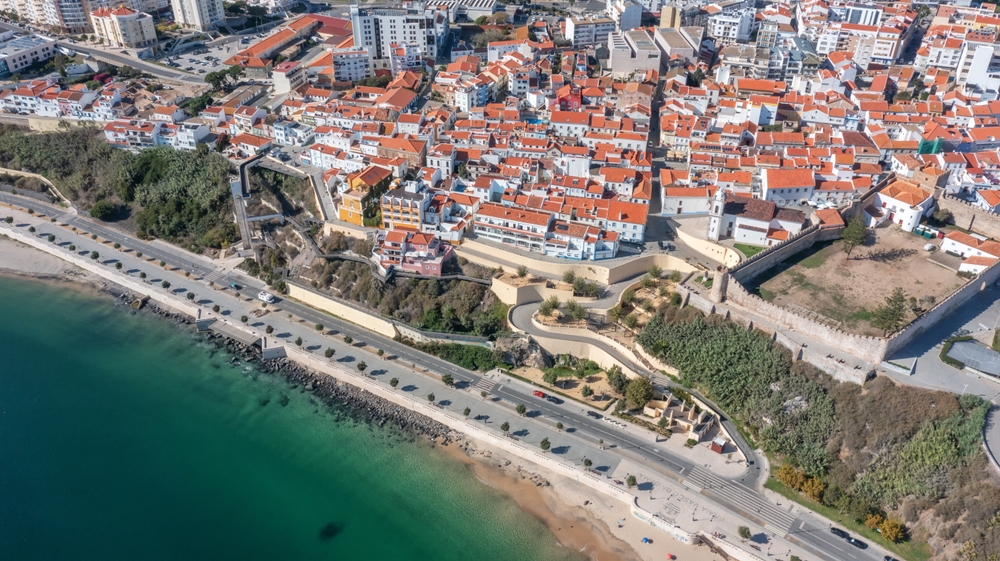
Once known only to connoisseurs and sommeliers, Portugal’s wine country now attracts the attention of discerning investors and lifestyle buyers worldwide.
Home to world-class vineyards, historic estates, and a rising reputation in the global wine market, Portugal offers wine enthusiasts and investors the rare blend of both lifestyle appeal and long-term value.
Let’s explore why Portugal’s wine country stands out as one of the best locations for wine investment and lifestyle across Europe, the key wine regions in Portugal investors should look out for, the routes you can take to invest in wine in Portugal, and what you must know before investing in Portugal’s wine country.
Why Portugal’s wine country stands out
Portugal is the 9th-largest wine producer worldwide, boasting over 250 indigenous grape varieties, many unique to the Iberian Peninsula. Each Portuguese region offers its own microclimate, terroir, and winemaking tradition.
More importantly for investors, Portugal’s wine real estate market remains significantly undervalued compared to neighbouring Spain, France, and Italy.
Some of the reasons for this include:
Sustainable wine production in Portugal is gaining traction, with eco-certified vineyards seeing higher demand from global buyers.
Foreign ownership of agricultural estates is fully permitted in Portugal and often encouraged at regional levels.
High-quality wine exports are growing, particularly to the USA, Brazil, and Northern Europe, supporting demand for quality production land.
According to recent reports from Savills Portugal, agricultural real estate in Portugal has appreciated by 5–8% annually in some regions and has been highly resilient to global downturns.

Key wine regions in Portugal for investment
Douro Valley
A UNESCO World Heritage Site, the Douro Valley is famous for its Port and, more recently, for its still wines.
Located in northern Portugal along the Douro River, the Douro Valley has an expanding tourism infrastructure. It is well-known for its boutique hotels, river cruises, and wine tours and is becoming increasingly acclaimed among international buyers seeking enotourism (travel focused on wine and vineyards) properties.
Alentejo
Often referred to as the “Tuscany of Portugal,” Alentejo is known for its expansive estates, cork forests, and powerful red wines.
Stretching from south of the Tagus River down to the Algarve’s northern border, Alentejo has seen rising interest from ecotourism and sustainable farming investors, partly due to its prime location.
Dão
A high-altitude region producing elegant, age-worthy wines, Dão is often considered less discovered, offering excellent value for entry-level investors.
Located in the Beira Alta area, north of Lisbon and inland from Coimbra, Dão is ideal for buyers seeking authenticity and long-term growth.
Setúbal and Lisbon Wine Belt
With close proximity to the capital, whilst offering a coastal lifestyle for relocators, Setúbal and the Lisbon Wine Belt’s strategic location is perfect for wine tourism businesses.
Emerging boutique wineries and guesthouse conversions benefit this region most. With Lisbon nearby, the region attracts both international visitors and local day-trippers, making it highly accessible and appealing year-round.
Minho and the Vinho Verde region
Located in Portugal’s verdant northwest, the Minho region is home to the famed Vinho Verde appellation—one of the country’s most exported wine styles, especially in the U.S. and northern European markets.
Known for its crisp, aromatic white wines and increasingly high-quality reds, Vinho Verde has experienced a modern revival driven by innovation and export growth.

The lifestyle appeal of Portugal for wine lovers
Offering more than just investment potential, Portugal’s wine country provides expats with a slower, more enjoyable pace of life in luxurious settings and locations. Many international families, semi-retirees, entrepreneurs and wine lovers are drawn to Portugal’s:
Mild climate: Portugal offers a Mediterranean climate with over 300 days of sunshine annually, ideal for coastal living and year-round leisure.
Natural beauty: From the Douro Valley to the Algarve coast, Portugal combines scenic landscapes with privacy and space in sought-after regions.
Low cost of living: While premium services and luxury properties are available, overall living costs remain comparatively low for individuals relocating from major global cities and other European countries.
Access to world-class wine and food: Michelin-starred dining and artisanal markets are scattered across Portugal, while centuries-old wine estates are a staple of Portuguese culture.
Engaging community culture and safety: Portugal’s stable society, low crime rates, and strong expat communities provide relocators with security and a sense of belonging.
Strong global connectivity: Direct flights from Lisbon and Porto connect easily to key business and lifestyle hubs across Europe, the Americas, and the Middle East.

Wine-based investment opportunities in Portugal
Vineyard estates
Buyers and investors can acquire working vineyards or underutilised land with strong potential to operate independently or lease to local producers. These investments offer potential capital appreciation, lifestyle appeal, and the potential for EU agricultural subsidies.
Enotourism projects
There is a rising demand for wine experiences (lodges, tastings, tours), creating opportunities for lifestyle investors to combine hospitality with enotourism.
Such projects can benefit from Portugal’s growing global wine reputation, year-round tourism, favourable licensing and appealing development conditions in rural zones.
Regulated wine funds
A small number of private equity and alternative investment funds now include agricultural assets, offering a potential hands-off route to wine investing.
However, not all agricultural or wine-focused funds are eligible for Portugal’s Golden Visa. To qualify, a fund must:
- Be registered with the CMVM (Portuguese Securities Market Commission).
- Be explicitly approved for the Golden Visa residency-by-investment programme by AIMA (formerly SEF).
Before proceeding, investors should request documentation confirming the fund’s compliance with current Golden Visa rules.
The minimum investment under this route remains €500,000. Eligible investors and their qualifying family members gain Portuguese residency and freedom of movement across the 29 EU Schengen region countries, while only requiring you to spend a minimum of 7 days per year in Portugal.
Before making any investment for the purpose of obtaining Portugal’s Golden Visa, it is essential to consult expert professionals who can provide up-to-date guidance on fund eligibility, regulatory compliance, and the latest legal requirements under Portugal’s Golden Visa programme.
What to know before investing in Portugal wine country real estate
Engage a local lawyer and agronomic consultant.
A qualified real estate lawyer will verify the property seller has the right to sell, ensure it is free of legal disputes, and confirm zoning and permitted uses.
Meanwhile, an agronomic consultant can evaluate the soil, topography, and microclimate to determine the land’s suitability for quality grape and wine production.
Confirm land classification and water rights.
Check if the land is legally classified for agricultural use and whether any restrictions apply to construction, renovation, or tourism development.
Water rights are also essential. Before committing, ensure the property has legal access to wells, boreholes, or irrigation networks.
Understand DOP regulations and wine region rules.
Portugal’s wine regions operate under DOP (Denominação de Origem Protegida) regulations that govern grape varieties, production methods, and labelling.
To market wine under a recognised regional name, you must register with the local wine commission and follow its strict standards.
Explore available grants and agricultural subsidies.
Portugal and the EU offer financial incentives for vineyard restoration, sustainable farming, organic conversion, and rural tourism initiatives.
These may include upfront grants, tax reductions, or co-financing through the Common Agricultural Policy (CAP) and national programs.
Protected zones and local restrictions
Investors should be aware that certain vineyard properties—especially in the Douro Valley—may fall within protected heritage or ecological zones, limiting development and requiring special permits.
While Portugal broadly permits foreign ownership, local restrictions on land use, renovation, and tourism licensing can vary significantly by municipality and region.
Want to learn more about real estate and investment in Portugal?
Book a no-obligation discovery call with a Portugal Pathways advisor to access expert support on real estate, tax structuring, investment in Portugal, as well as Portugal’s Golden Visa residency by investment programme, by clicking here.
FAQs
Is wine investment in Portugal eligible for the Golden Visa?
Yes, if the investment is made through a qualifying alternative investment fund regulated for Portugal’s Golden Visa. Direct ownership of vineyards does not qualify.
Before making any investment for the purpose of obtaining Portugal’s Golden Visa, it is essential to consult expert professionals who can provide up-to-date guidance on fund eligibility, regulatory compliance, and the latest legal requirements under Portugal’s Golden Visa programme.
Arrange a no-obligation discovery call with Portugal Pathways to speak with an expert advisor.
What are the best wine regions in Portugal for real estate investment?
Top regions include Douro Valley, Alentejo, Dão, Minho and the Vinho Verde Region and Setúbal/Lisbon Wine Belt, each offering different climate, wine styles, and investment appeal.
Can expats buy vineyard land or wine estates in Portugal?
Yes, foreign buyers can fully own agricultural and vineyard land in Portugal. There are no restrictions based on nationality.
What is the average cost of a vineyard estate in Portugal?
Prices vary significantly by region, size, and production status, but small boutique estates may start from €500,000, while premium properties can exceed €2 million.
What taxes apply to buying wine, land or estates in Portugal?
Buyers typically pay IMT (Property Transfer Tax), stamp duty, and notary/legal fees. Agricultural land may benefit from reduced IMT in some cases.
Can I run a wine tourism business on a vineyard property?
Yes, provided the property is zoned for tourism use or approved for rural/agritourism development. Licensing is typically done at the municipal level.
Are there EU subsidies or grants available for vineyard owners in Portugal?
Yes, EU and Portuguese government programs support sustainable farming, organic conversion, and rural tourism through CAP grants and other incentives.
How can I evaluate the quality of vineyard land in Portugal?
You should consult an agronomic consultant to assess soil quality, slope, water access, and suitability for grape cultivation under local DOP rules.
What are DOP wine regulations in Portugal?
DOP (Denominação de Origem Protegida) standards govern what grapes, methods, and labeling can be used in each region. Compliance is necessary to market wine under regional designations.
Secure EU Residency Through Portugal’s Golden Visa By Investment
Gain visa-free travel, family inclusion, and a secure path to EU citizenship
Maximise your wealth, tax status, property & life in Portugal
Talk to our expert team, so that we can offer personalised support to meet your specific needs.





